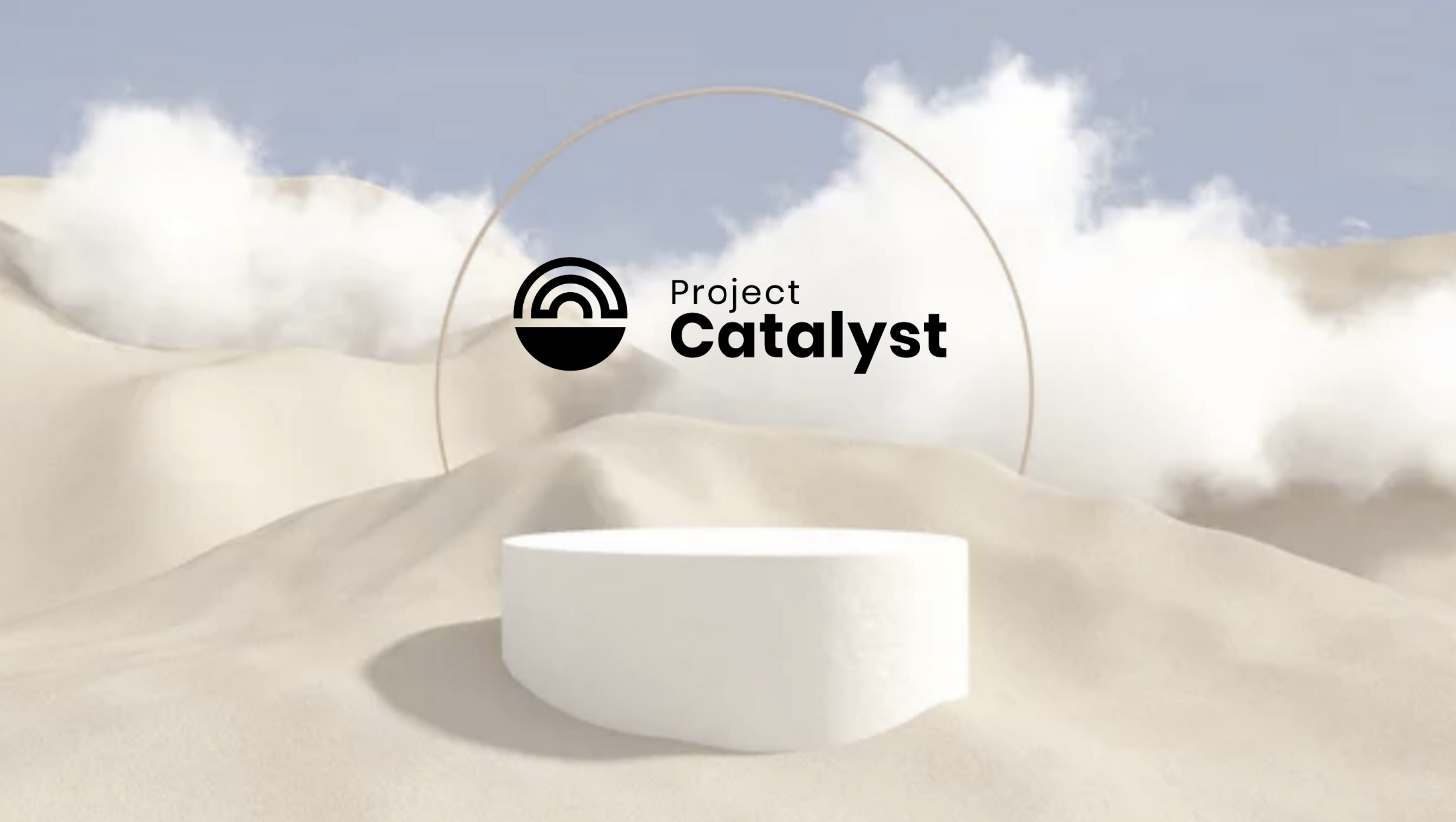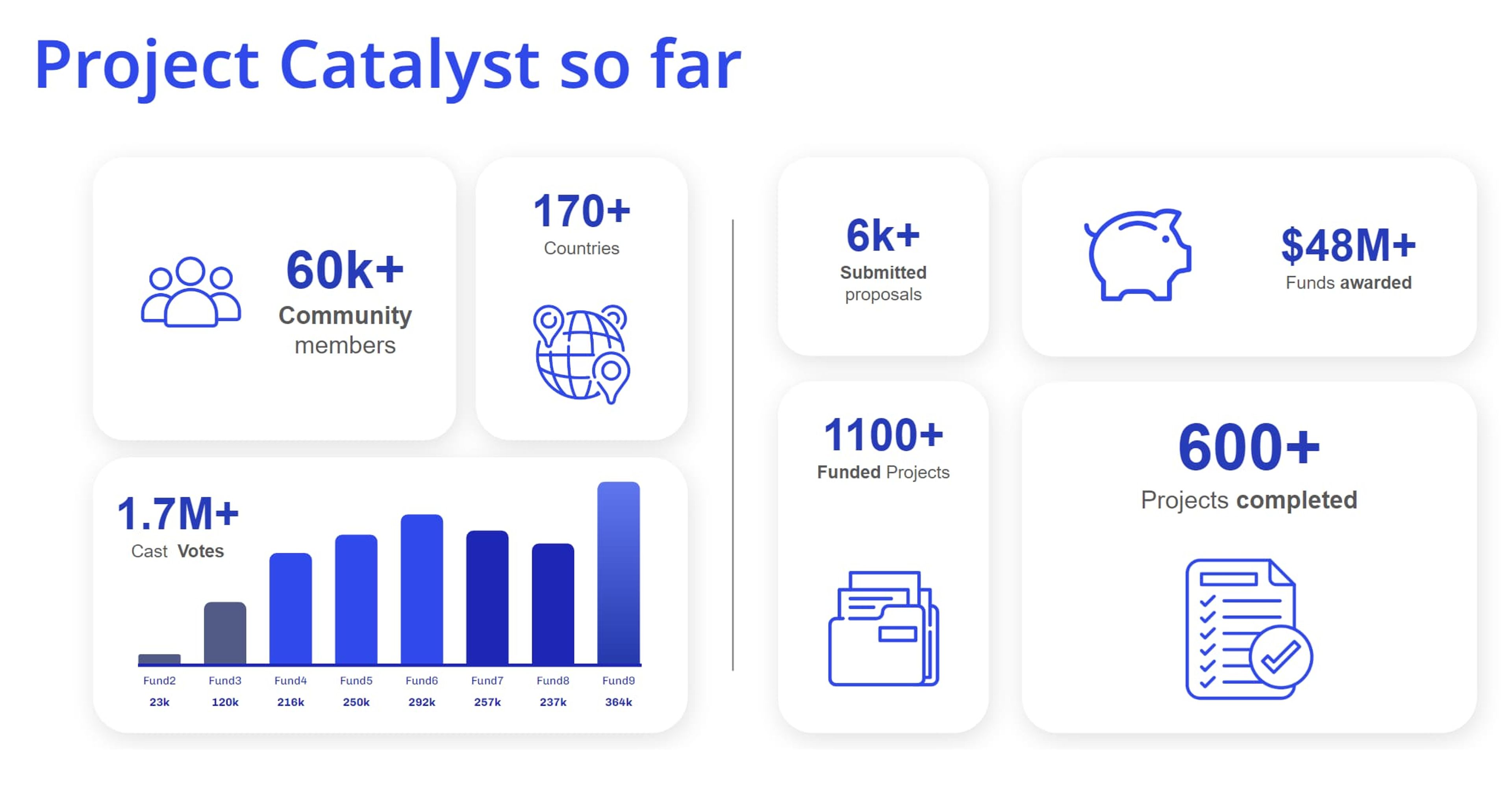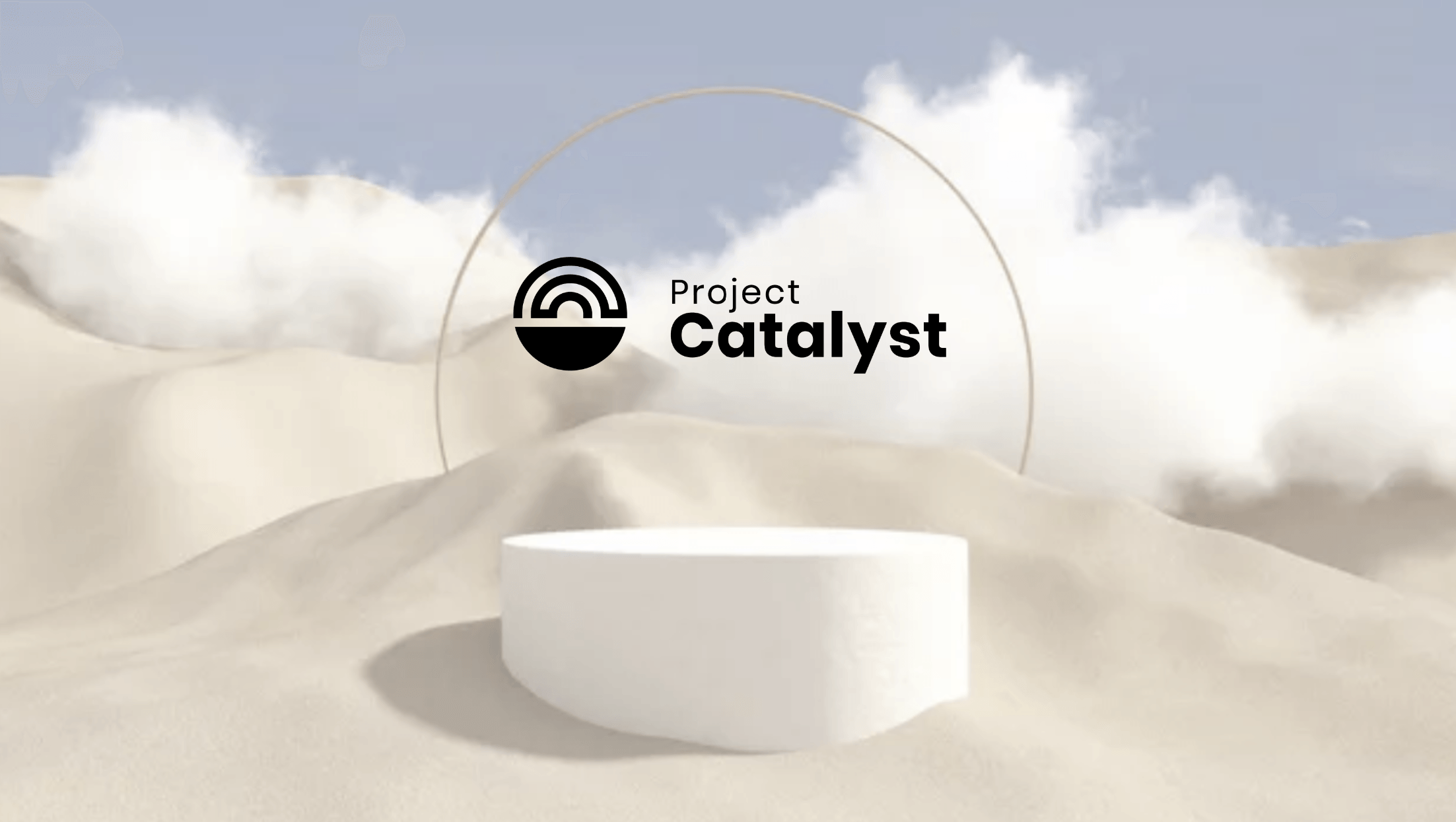
Introduction
2022 was a momentous year for the Cardano ecosystem. During November’s IO Scotfest event, it was announced that Cardano had entered the age of Voltaire. While the Cardano community continues to advance Cardano’s self-sustaining participatory governance system, the foundations for Cardano’s governance were laid out during the Shelley development phase. Each phase of the initial Cardano roadmap has seen the integration of new features built upon previous ones.
This article explores the evolution of governance on Cardano since its inception in Shelley and its implications for Catalyst and the larger community as Cardano moves forward in the age of Voltaire.
The Shelley era’s impact on Cardano
The focal point of the Shelley development phase was to decentralize the network further while increasing its resilience and maintaining its security. 2020’s Shelley upgrade paved the way for new governance structures and stimulated experimentation that yielded many of the concepts currently shaping Cardano's approach to governance today.
Launching the Shelley mainnet allowed users to start delegating their ada to stake pools, which increased stake pool participation. Following the introduction of the Cardano Improvement Proposal (CIP) process in the summer of 2020, the Cardano community began to develop and submit CIPs that outlined potential changes or enhancements to the protocol—this further decentralized the development process.
During this time, a powerful approach to sustainability began to form. Project Catalyst was introduced publicly in September 2020 as a social experiment that fosters an open and democratic culture within the Cardano community.
The evolution of Project Catalyst
Project Catalyst has evolved significantly since its inception. Starting as a small-scale decentralized funding experiment, it has since grown to become a significant driver of innovation and community engagement within the Cardano ecosystem. With each new fund, Project Catalyst has become more sophisticated and inclusive, helping to build a strong community of creators, educators, developers, and entrepreneurs focused on delivering Cardano’s mission to make the world better for all.

Project Catalyst has provided a collaborative way for community members to share their ideas, skills, and knowledge, creating innovative proposals with the potential to transform the Cardano ecosystem. The project has shown that community-driven decision-making can be a powerful tool for innovation. It has opened the way for a more inclusive and participatory approach to ecosystem development.
Project Catalyst has championed a widespread and collaborative approach to propel funding innovation at a grassroots level. This commitment to funding innovation from the bottom up empowers community members to explore novel ideas and bring innovative projects to life that might otherwise not receive funding. Project Catalyst enables the community to support heightened levels of innovation, experimentation, and empowered engagement among all participants in the Cardano ecosystem.
Understanding Voltaire
The age of Voltaire builds upon current governance, further unlocking the community's contributions to an existing participatory governance system on Cardano. By learning from the successes and challenges of the journey so far, as well as ample research in global governance structures, Voltaire will bring a revolutionary model to the third-generation blockchain world. The governance framework comprises three core pillars of participatory governance: constitutional representation, institutions, and democratic consent, which advance individual agency and empower people.
Voltaire’s vision is to enhance participatory governance for the Cardano ecosystem. By establishing a new model for ecosystem governance in third-generation blockchains, Cardano aspires to serve as a new standard. Catalyst has given the ecosystem an incubation and innovation hub, an essential institution to foster growth and empower smaller community members to play a role in Cardano’s evolution.
Freedom to operate and engage
Voltaire advances participatory governance with overarching principles, mechanisms, and guidelines for the Cardano ecosystem, similar to how governing bodies support an entire nation. The ecosystem is home to a diverse group of institutions operating and supporting it since its inception.
Voltaire will contribute to a new entity, Intersect, a Cardano members-based organization (MBO). Intersect will aggregate members to be administrators of processes that govern the continued roadmap and development of the Cardano platform and protocol. Catalyst is another institution that supports the ecosystem. Project Catalyst’s structure and operations reflect its grassroots effort to enable community innovation and ecosystem growth. It has the autonomy to create and implement policies that reflect the unique requirements of its constituents.
With the introduction of the Catalyst Fund Operations and System Improvement categories, Catalyst is taking great strides to open new opportunities for co-collaboration and co-creation alongside the Cardano community. In the near future, through the on-chain component of democratic consent (CIP-1694), the Cardano community can utilize on-chain voting to approve treasury fund requests. With this advancement of participatory governance, institutions such as Catalyst will draft a proposal to the Cardano community explaining the reasons for their funding request and how this funding will benefit the entire ecosystem.
Conclusion
Voltaire represents a new age of Cardano and an exciting new era for Catalyst, which is no longer an experiment but a fully realized institution within the Voltaire governance framework. This new age advances inclusive accountability for all participants in the ecosystem. Participatory governance is evolving, and Catalyst's future will continue to be charted through the combined efforts of all community members in increasingly efficient ways.
How to get involved?
There are many ways to get involved with Project Catalyst, as an innovator, voter, commenter, proposer, proposal reviewer, community advisor, or even a mentor. The first step is creating an account on the Catalyst collaboration platform, IdeaScale. Another way is to join the Project Catalyst community every Wednesday at TownHall, live-streamed on the Project Catalyst YouTube Channel. If you have an idea or are just curious to explore what’s going on at the heart of Cardano, join the TownHall and become part of the Project Catalyst community.
To learn more about Project Catalyst or to take part and answer challenges posted by others through Project Catalyst, please subscribe to the Catalyst mailing list and join the Discord and Telegram communities.
To learn more about Intersect or to take part in advancing participatory governance in the age of Voltaire. Join Intersect as a founding member today.
If you are eager to learn more about Cardano institutions and their role in the Cardano ecosystem, check out the blog post recently published on the intersectmbo.org website.
I want to thank Addie Girouard, Tim Richmond, and Fernando Sanchez for their input and support in creating this blog post.

